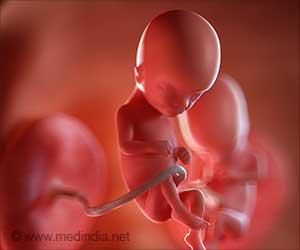
Migraine is Not Just a Headache
Migraine can cause throbbing pain that can leave you in bed for days. Even slight movement, light, or sound can trigger symptoms such as pain, nausea, irritability, difficulty speaking, temporary loss of vision, and many more.‘People with migraine had higher levels of DKK1 and PDGFB, and lower levels of FARS2, GSTA4, and CHIC2 which causally increased their risk of migraine.’
Tweet it Now
The new study identified causal genetic links between migraine risk and altered levels of five blood proteins. Lower levels of FARS2, GSTA4, and CHIC2 proteins are linked to inflammation and migraine. Higher levels of DKK1 and PDGFB proteins are linked to brain disorders.The risk-increasing effect of DKK1 provides a potential mechanistic link between the previously reported associations between migraine, Alzheimer’s disease (AD), and cerebral amyloid angiopathy (CAA).
The higher levels of DKK1 and PDGFB blood proteins inhibited signaling pathways that pass biological signals into cells and could lead to brain calcification as well as inflammation causing pain, while lower levels of antioxidant blood proteins FARS2, GSTA4, and CHIC2 also caused inflammation linked to migraine.
Is There a Link with Alzheimer’s Disease?
This notable finding of a strong causal effect of higher levels of DKK1 on migraine risk might be linked to a reduction in signaling as observed in Alzheimer’s disease.Cerebral amyloid angiopathy is a build-up of proteins in brain arteries known to cause Alzheimer’s disease and reduced signaling has also been shown to increase neuropathic pain in a rat model.
Migraine was considered one of the most common neurological diseases in the world and was under-researched considering its significant public health burden.
Advertisement
The good news is that there is already some development of therapy targeting increased DKK1 for Alzheimer’s treatment and the potential to repurpose that therapy for migraine.
Advertisement
However, although a subset of individuals who have Alzheimer’s may also have a history of migraine, not all migraine patients will have this link — not all people with migraine will get Alzheimer’s disease.
There is typically no single cause for these complex conditions leading to diagnosis. There are lots of different mechanistic pathways that can go wrong and lead to disease.
Future clinical studies should examine whether altering blood levels of the implicated proteins, such as using DKK1 inhibitors currently available reduces migraine occurrence in migraine patients.
Source-Medindia









